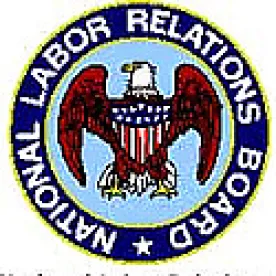The NLRB’s New Election Procedure Rule (here and here) vastly expands the requirements placed on employers as part of the union election process. Employers worried that the expanded requirements would provide new and multiple avenues for unions to object to negative election results. The case discussed below demonstrates those fears were not unfounded.
One expansion of the NLRB’s election rule procedures was that related to the Excelsior List/Voter Eligibility List requirement. This is the list employers must provide to a union after either a Stipulated Election Agreement is reached or a Direction of Election is issued. Under the new NLRB rule, this alphabetized list must be provided in electronic format, be provided within two business days after approval of a Stipulated Election Agreement or Direction of Election, and must contain full names, work locations, shifts, job classifications, and contact information (including employee home addresses, “available” personal email addresses and “available” home and personal cell phone numbers.)
The Case
In a case recently decided by the Region 01 Regional Director Jonathan B. Kreisberg, Case No. 01-RC-153086, employer fears of increased litigation over technical requirements like those discussed above proved to be spot on. In this case Danbury Hospital of the Western Connecticut Health Network staved off a union organizing attempt, only to have its election victory snatched away after the losing union filed Objections to the election results. One of the union’s Objections involved the allegation that the employer had failed to provide all “available” personal cell phone numbers and personal email addresses of employees as required by the NLRB New Rule. The union filed its Objection notwithstanding the fact that it was also undisputed that the Hospital had provided 94 percent of all phone numbers and every personal email from its Human Resources database. Even though this was true, the regional director still ordered a new election because he found the Hospital was not diligent enough in its efforts to look for information (whether or not such diligence would have led to any additional emails or phone numbers).
NLRB Region 01 Regional Director Kreisberg found the Hospital’s efforts to locate information for the list insufficient. He determined there were a number of other potential databases that the hospital could have searched for personal employee contact information, and that the hospital’s failure to look there violated the NLRB’s New Election Procedures Rule. This was the result even though searching just one of those databases would have required the hospital to sort through 36,000 logged contacts. The regional director gave little credence to the fact that the employer’s obligation to search all available databases/data sources had to be accomplished within two business days under the New Rule, or that there was really no evidence as to what other contact information existed for the employer to find.
The regional director contended that what the New Rule required was a good faith effort to search the other databases and that the hospital’s singular reliance on its Human Resources database was therefore insufficient. He construed the New Rules’ requirement to provide all “available” personal email addresses and cell phone numbers expansively under a “reasonable diligence” standard and reached deep into a Federal Register footnote to support the result. Here is what he found to support his ruling:
In implementing the Final Rule, the Board anticipated that Employers may maintain employee contact information in more than one location. The Rule makes it “presumptively appropriate to produce multiple versions of the list when the data required is kept in separate databases, thereby reducing the amount of time that Employers might need to comply with the voter list requirement. 79 Fed. Reg. 74354, at fn. 227.
He ultimately concluded: “What the Rule requires is an Employer’s good faith effort to search its files and databases for the newly required contact information,” not just provide the information on the list. In other words, the mere failure to search diligently was itself a violation.
The Lesson
Employers need to take note of this expansive reading of what will be considered compliance with the Excelsior/Voter Eligibility List requirement, or they will put themselves at risk of re-run elections even if they win.




 />i
/>i

